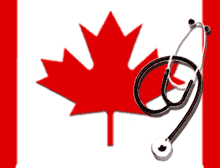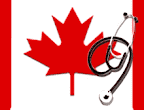 A new study warns that within three decades the Saskatchewan government will be dedicating 50 per cent of its budget on health care.
A new study warns that within three decades the Saskatchewan government will be dedicating 50 per cent of its budget on health care.
Provincial health-care spending continues to grow at an unsustainable rate and will consume more than half of all revenues in six of 10 Canadian provinces by 2035 unless changes are made, according to the Fraser Institute's report Paying More, Getting Less 2007: Measuring the Sustainability of Public Health Insurance in Canada which was released on Monday.
"If health-care spending continues at current rates without changes to our health care system, provinces are going to hit a wall where they have to choose between reducing other services such as education, or imposing further restrictions and rationing of health care,'' said Brett Skinner, the institute's director of health, pharmaceutical and insurance policy research, in a prepared statement.
"If Canadians refuse to embrace change or other policy alternatives, they can expect to continue paying more and getting less when it comes to health care.''
According to the report Saskatchewan would be spending 50 per cent of its provincial budget on health care by 2028, while Nova Scotia and Newfoundland and Labrador are the most urgent cases. Health-care spending in those two provinces could consume half of all revenues within 10 year.
Saskatchewan Health did not comment on the report.
The study noted that in 2006-07 the Saskatchewan health budget consumed 34.8 per cent of all provincial revenues.
The report notes several factors influencing provincial revenues that could change in the coming years, thereby affecting the percentage of revenues eaten up by health care spending.
Provinces, such as Saskatchewan, Alberta, British Columbia and Newfoundland and Labrador have been affected by inflation in energy prices over the past five years, according to the Fraser Institute. It's report noted that it is uncertain if the economic conditions driving increases in energy prices will persist in the future, making it unclear whether recent growth rates for gross domestic product (GDP) and revenue will continue.
The report also pointed out that the growth rates for government health spending in Manitoba and the Maritime provinces are subsidized by federal transfers to a much higher degree than rates in other provinces.
The report goes on to conclude that public health insurance, as it is currently structured in Canada, tends to produce rates of growth in health spending that are not financially sustainable through public means alone. It adds that this is occurring while governments are restricting and reducing the scope of benefits covered under publicly funded health insurance.
In his report Skinner suggests a number of government cost-cutting alternatives such co-payments, user-fees, allowing patients to pay for medical services through private insurance or out-of-pocket, and permitting both for-profit and non-profit health providers to compete for the delivery of publicly insured health services.
"Medicare is a government-run health insurance monopoly. Its design is flowed because it is influenced by politics and not economics. It is not accountable to patients and is barely accountable to taxpayers,'' Skinner said.
"If we want to ensure we have a health care system that's affordable and sustainable, Canadians need to start looking at private sector health-care policy alternatives.''
Leader-Post
 This is just a story from a girl who goes by the online name of "Mofi" writing about a very recent experience with Canadian health care. It's good to hear something positive for a change so I wanted to share this with you............................
This is just a story from a girl who goes by the online name of "Mofi" writing about a very recent experience with Canadian health care. It's good to hear something positive for a change so I wanted to share this with you............................


